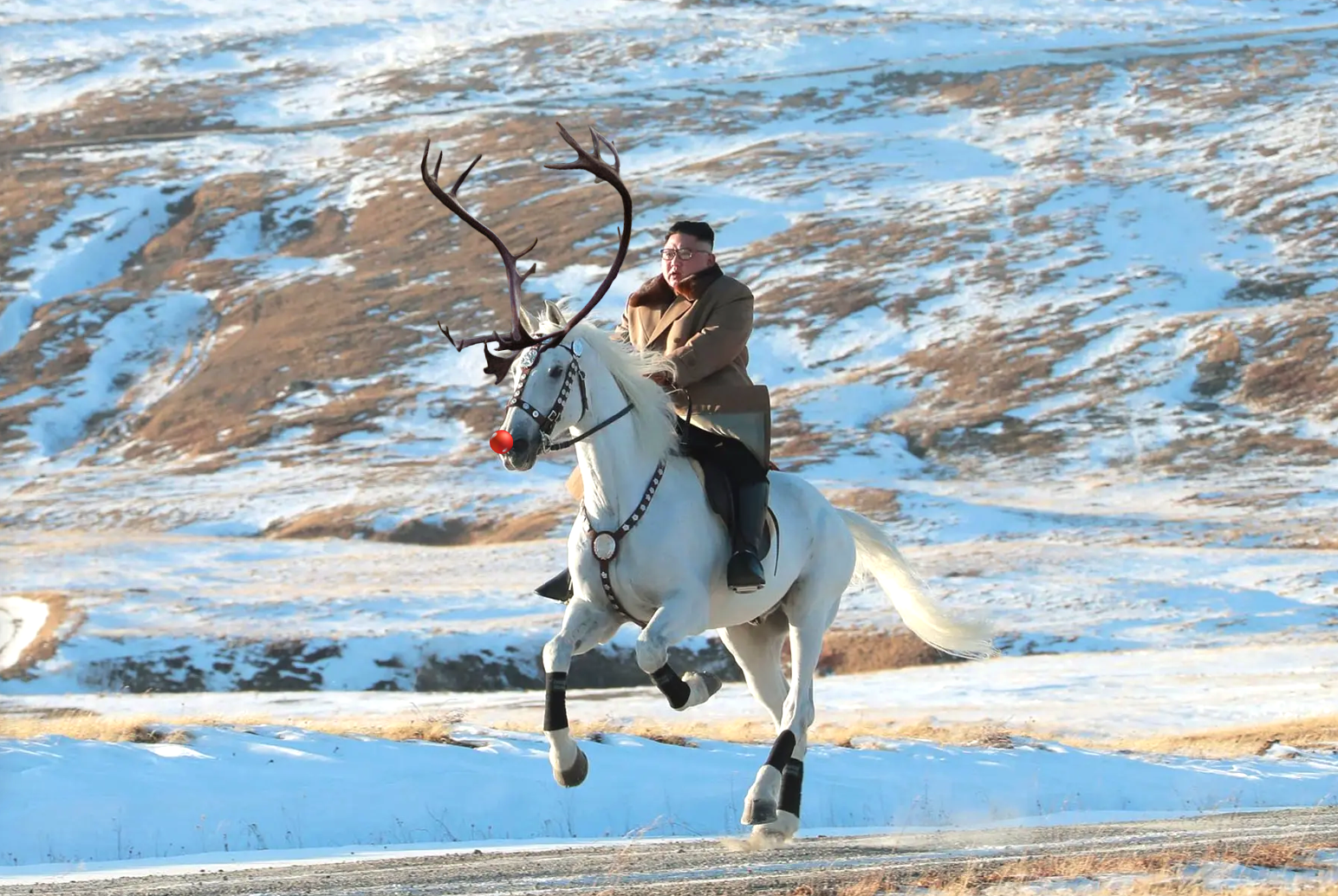Kim Jong-un as Santa – With US nuclear talks stalled, Kim Jong-un has been trying to grab President Trump's attention in recent months by, for example, lobbing more rockets into the Sea of Japan, and today making good on threats to again call Trump a "dotard." But North Korea's supreme leader is also trying out some scary Santa shtick. This week, a North Korean official criticized efforts to restart the nuclear talks and said (ominously) that it's "entirely up to the US what Christmas gift it will select to get." We ignored his "Epitome of Civilization Village" in our Wednesday edition, but we admit we're curious to see what stunt Kim might dream up next.
A Ukrainian wall? – Next week, the leaders of Ukraine, Russia, Germany, and France will meet for the first time in more than three years to discuss the war in eastern Ukraine between Ukrainian troops and Russian-backed separatists, which has so far killed more than 13,000 people. A senior advisor to President Volodymyr Zelensky warned this week that Ukraine might build a wall to separate the Russia-backed breakaway provinces of Donetsk and Luhansk from the rest of Ukraine unless the Kremlin agrees to a ceasefire and prisoner swap. Failure to reach an agreement next week will again raise a painful question for Ukrainians: Should Ukraine recognize the renegade provinces as independent in order to deprive Russia of its foothold in Ukraine? Or do the Ukrainian people believe that such a surrender of territory is unthinkable?
France on strike - Nationwide protests against proposed pension reforms brought France to a standstill on Thursday, shutting down Paris' sprawling public transport system and leaving schools and hospitals unstaffed. The strikes – dubbed "black Thursday" by French media – started when President Emmanuel Macron announced plans to overhaul France's 42 separate retirement schemes in order to offset the country's ballooning deficit. France has one of the world's most generous pension systems, and French politicians tinker with it at their peril. For now, Macron is going full steam ahead (unlike last year, when he dropped a fuel tax hike because of the Yellow Vest protests). But growing social discontent is still his biggest challenge. After last year's protests he softened up his image and returned from the political dead, but can Macron defuse this latest crisis and keep the calm for another two years to win re-election?
Kashmiris lose WhatsApp – This week, at least one million Kashmiris had their WhatsApp accounts suddenly wiped from the platform, and no one knew why. It soon became clear that the Facebook-owned messaging app automatically disables accounts after 120 days of inactivity. Why were so many Kashmiris inactive for so long? Because four months ago India's government revoked the legal autonomy of Kashmir— India's only Muslim-majority state – and shut down the region's phone and internet communications, making it impossible for Kashmiris to use WhatsApp. India is WhatsApp's largest single market, and many Kashmiris rely on it to communicate with dispersed family and friends. Now they will be doubly cut off from their loved ones beyond Kashmir's borders.
What We're Ignoring
Sisi vs Tuktuk – The Egyptian government wants to do away with tuk-tuks, the popular motorized rickshaws that careen through the capital's streets, beeping and blaring Arab pop music. They pollute, yes. And they are a nuisance for some drivers, yes. But they are also a source of informal livelihood and transport for millions of lower-income people in one of the world's most crowded cities. Ya raagel, as they say in Egypt, this seems like a battle the government isn't going to win easily.
